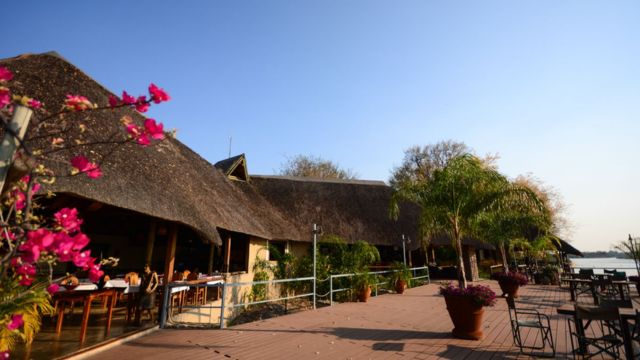
Responsible travel helps local communities to earn a fair income from tourism while both supporting conservation and attempting to reduce the environmental impact of the trip itself. Being a responsible traveler in Africa does not need you to ride a bike and sleep in a mud hut (though both are advised). You may enjoy a luxury safari while remaining responsible by ensuring that the firm you choose operates its lodges ethically and engages with the local community.
Ecotourism, which focuses on the physical environment and conservation, launched the trend for ethical travel. The phrase “sustainable” or “responsible” travel was coined in the last decade to express the view that Africa’s people are as important as its environment and animals. Indeed, incorporating local communities is frequently critical to the success of many conservation programs.
For example, villagers living on the outskirts of a national park are more likely to denounce poaching within their community if they are provided with the necessary training to earn a career as a safari guide.
One of the core tenets of responsible travel is to spend your money in the place you’re visiting, so contributing to the local economy. If you pay for your full trip in advance, including all meals, the majority of the earnings will go to the tour operator. By shopping, eating, traveling, and staying local, you can help the towns you visit.
Book With a Responsible Tour Operator
Many African tour operators promise to provide environmentally responsible travel itineraries. If you intend to use one, be certain that they are genuine and not just brilliant at marketing.
Can a Luxury Tour be Responsible?
The quick answer is yes, but just a few companies do it correctly. The high-end tourist spends a lot of money and can make a big difference. A simple stop at an orphanage as part of a $15,000 safari can easily result in a client sponsoring a nurse for ten years.
Many luxury tour operators, however, prioritize their clients’ wants over the needs of the community, such as scheduling stays in 5-star hotels with three swimming pools and a spa while the locals are suffering from debilitating drought. Responsible tour operators select tours, hotels, and restaurants that have the least amount of influence on the local community.
Can a Low-Cost Tour Be Reliable?
Budget hotels frequently claim to be “eco-friendly” since they lack power and feature a pit latrine in the back. Take note of this. Most budget tours, on the other hand, do an excellent job of directing their funds directly to the local community by purchasing at local markets, staying in locally owned motels, and eating at local restaurants.
If you find an itinerary that is significantly less expensive than its competitors, check sure the tour operator is not cutting expenses in areas you disagree with. A low-cost Kilimanjaro hike, for example, may indicate that the operator has reduced porter salaries to safeguard its bottom line.
Responsible Travel is a fantastic resource for all vacations and tours when selecting an operator.
Stay in Locally Owned or Eco-Hotels
How do you ensure that your African hotel or lodge adheres to “responsible” guidelines? Many mainstream hotel booking platforms prioritize chain hotels. Spend an extra five minutes looking for a hotel that isn’t a Hilton, Sheraton, or other huge chain with headquarters in Africa (where the money are made). Choose a hotel that is locally owned and operated.
There are usually decent bed & breakfasts or guest rooms that provide service comparable to the big chains. The service will be more personalized, and you will frequently receive superior “insider” recommendations on what to see and do.
How to Book Small Hotels in Africa
Booking a guesthouse or small hotel in Sub-Saharan Africa can be difficult if they do not have a website or do not accept internet payments. However, most smaller hotels have an e-mail address and are mentioned in guidebooks such as Lonely Planet and Bradt.
Use the address to make direct contact with the hotel and plan your stay. Reading TripAdvisor reviews is an invaluable resource for learning about the tiny hotel. A change in management can significantly improve or degrade a small hotel, thus receiving a current review is critical. Search by location, then check the B&B or Specialty Lodging boxes to narrow your results to smaller, independently owned hotels.
Eat in Local Restaurants
When visiting cities like Cape Town and Marrakesh, where amazing restaurants abound, eating in a local restaurant is a no-brainer. However, if you’re staying in Nairobi, Accra, or Kigali for a few nights, resist the temptation to eat all of your meals in the hotel restaurant. Get out there and try the local cuisine.
While few African capitals provide gourmet cuisine, several have excellent restaurants providing regional cuisine. Before you go, do some research on regional specialties and ask your hotel management for recommendations on where to eat. Start carefully to avoid stomach upset as you become acquainted to various spices and oils.
When sampling street food, be sure it’s properly cooked and avoid salads and fruits that may have been washed in untreated water. Finally, don’t forget to order a bottle of the local beer to wash down your meal.
Visit Local Markets and Go on Craft Tours
Shopping locally is an easy way for you to be a responsible traveler in Africa. Purchase your presents directly from traders and artists. Local tailoring is available. Try negotiating for souvenirs; it’s entertaining and will improve your local language abilities. Whether you’re looking for lamps in Fez’s medieval medina or getting sandals made at a Maasai market in Tanzania, these are the activities that will make your trip memorable.
If you’re not sure how to bargain or find the bustle of the market too much to bear, most African capitals will have a government or private arts and crafts shop that offers products from all over the country at fixed pricing. Simply ask your operator or hotel staff for assistance.
Buy from the Artists Themselves
If you like arts and crafts a lot, try to go to a town where they are made and meet the people who make them. There are many places on the continent that are known for their own special skills. For example, artists and their families live in Tengenenge Village in Zimbabwe. They all work hard to make beautiful Shona sculptures.
Outside of Kumasi, Ghana, there are craft towns where people can try their hand at making Adinkra prints, pots, kente weaving, brass casting, and beads. Some tour companies have whole plans for getting to know the crafts of a certain place.
Reduce the Amount of Carbon You Produce
Leaving as little of a carbon footprint as possible is part of being a good traveler. For many places in Africa, you have to take a long trip, but there are ways to leave less of a mark once you get there.
If you’re coming from North America, it might be hard to find a straight flight to the African country you want to visit. But try to keep the water jumpers to a minimum. Business tourists can try to plan their trips so that they don’t have to keep flying back and forth. Given how bad the roads are in many African countries, flying is often the best way to get around. However, there are also many countries with good train and bus systems.
Using local transportation is a great way to see Africa and is better for the environment as well. If you book a luxury tour, you probably won’t use public transportation at all. But for other trips, you should find out what kinds of transportation are available in the area.
Trains are safe and effective ways to get around in places like Morocco, Egypt, and Tunisia. The networks are good, and unless you’re going to the desert, you don’t really need to rent a car or a driver. South Africa also has a good network of long-distance coaches. However, public cabs and trains should be used with caution.
Spend Time With Local People
Respecting the local culture and maintaining an open mind are important aspects of traveling ethically in Africa. Try to meet people who aren’t being paid to assist you, carry your bags, or serve you food. There are numerous approaches to this.
While on safari, inquire about visiting a traditional hamlet or consider volunteering your time and assisting with a community effort. It’s also a good idea to learn a few short phrases in the local language before you leave. It aids in the removal of social and cultural barriers, and the people you meet will appreciate your efforts.
If you wish to volunteer while on vacation, there are numerous initiatives to select from that can last anywhere from a few days to several months. You will, by definition, eat, sleep, and shop locally while also contributing to the local community in a more tangible way. Read our article on relevant short-term volunteer options for more information.
Township Tours & Village Visits
Traditional tribespeople can be encountered throughout Southern and East Africa, particularly on safari. Traditional land use by pastoralist groups like the Maasai, Samburu, and Himba has been disrupted by the creation of protected areas for animals. Their already tense relationship will only worsen if they fail to recognize the financial potential in guiding tourists in pursuit of the lions that prey on their cattle.
Paying to visit their communities not only helps them financially but also gives you insight into their ancient ways of life.
The Kalahari Desert in Southern Africa is home to numerous hunter-gatherer communities, known collectively as the San or Basarwa. The Hadzabe people of Tanzania all have a similar way of life. As with farms and nature preserves, these traditional hunter-gatherers have seen their territory dwindle. Their own governments view them as “backward” and give them minimal authority as a result. Input is welcome.
The more of an interest you, as a tourist, exhibit in learning about these civilizations, the more influential their words will be. Tours of Soweto and Khayelitsha, two of South Africa’s largest informal settlements, reveal the country’s troubled political history but also offer a glimpse of the country’s bright future.
Encourage Your Friends and Family to Join
Tourism is a major source of revenue for many African nations, but the continent requires positive marketing to counteract what they see in the news. You can boost tourism by telling others about your journey back home. Of doubt, safety is a worry (more so in some areas than others), but Africa’s reputation as a violent, impoverished place is unjust to the vast majority of the continent’s inhabitants.
Many people’s perceptions of daily living in Africa are far from accurate. Yes, there is poverty in Africa, but it does not necessarily imply suffering. Many visitors are taken aback by the beaming smiles and genuine happiness they observe in some of Africa’s poorest rural settlements.
You’ll be doing your job as a responsible traveler if you can show your friends and family back home photos of people going about their daily business – market places full of traders, stalls piled high with food, churches full of congregants, and kids running home for lunch in their smart uniforms.



